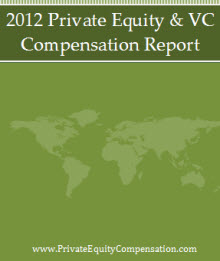One thing venture capital has in common with other industries is that getting in is a catch-22. Before they come knocking on your door, you have to knock on a thousand others.
Whether you are coming straight out of school or making a career change, you are still new to the industry, and that means you have to jump that entry-level barrier. No one wants to deal with an unproven individual, and everyone wants to talk with the best. Once you prove yourself, your reputation will follow you. What can you do to show the industry what you’re made of?
Recently, a lot of books and news articles have focused on how famous entrepreneurs learned from great failures. It’s not uncommon to see articles like “Warren Buffett Admits To 5 Big Mistakes.” While talking up the dumbest things you ever did may be in vogue, you won’t see any big articles by no-name people telling stories about their investment failures. Why is that? No one cares about failures unless they get to hear the emotionally satisfying story of the “bounce back.” How did you rebound from that experience and become the next great success story? While failures can be interesting, people only want to hear about them if they are in the context of a larger success story.
For many, the rags-to-riches story still remains one of the most captivating narratives. At your moment of greatest desperation, how did you rise above the obstacles and create something extraordinary? The drama of it is what inspires the listener. If this sounds like mere storytelling, that’s because it is. If you want to succeed in the venture capital industry, you have to know your story.
If you don’t have a story, then it’s time to make one. According to George Zachary, partner at the Silicon Valley VC firm Mohr Davidow, his advice for getting in venture capital is “Go start a successful company. Then we’ll talk.” You don’t have to start the next Berkshire Hathaway. It can be anything. However, the company must be successful. That doesn’t mean it has to be profitable, but revenue should be growing.
Whether it’s investing in people or companies, the bottom line is not always the only thing that matters. Charlie O’Donnell, founder of Brooklyn Bridge Ventures, said, “Wealthy people want to trade money for interestingness. When you’re investing in the next big thing, even if you’re not putting a lot of dollars to work, you’ve got fun stories to tell. People can point to apps on their phone and say, ‘I funded the people who built this.’”
O’Donnell understands the storytelling part of the investment equation. Whether you are just starting out or you are a ten-year veteran, everyone always wants to know the answer to one question: “What’s your story?”

